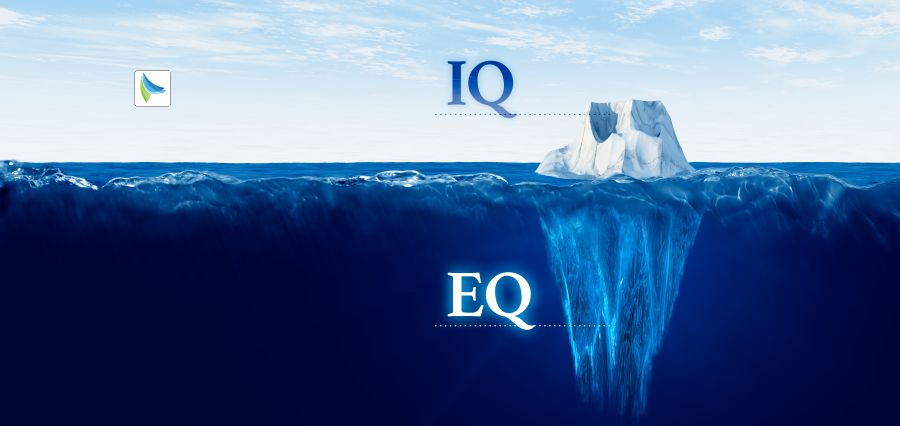The Human Advantage
In a time where the world seems to be ruled by algorithms, automation, and artificial intelligence, the notion that leadership is about dominating systems, data, and technology is quite appealing. Nevertheless, the one fact that remains after the digital revolution is that emotional intelligence is what separates great leaders from good ones, not technical expertise. Next leadership generation will not require knowing more but feeling more. The human advantage, to its ultimate, is in the ability to relate to, understand, and motivate others.
The Shift from IQ to EQ
For a long time, successful leadership was judged by the mental capacity, the strategic thinking, and the skill level of the leader. In such a role, leaders had to rapidly think through a situation, make a decision quickly, and carry out the task without error. However, as larger organizations tend to become more complicated and the workplaces more multicultural, an entirely different type of intelligence has come out on top as the most important one—emotional intelligence (EQ).
EQ includes the skills of identifying, understanding, and dealing with the personal emotions, as well as detecting and influencing the emotions of other people. With it, leadership can turn from a transactional to a relational one. Smart IQ may create the strategy, but strong EQ unites people so that they can bring it into action with enthusiasm and a sense of purpose.
In the world we live in where most tasks are automated, the leader’s advantage is not being more efficient—it is being more empathetic. Machines are capable of performing calculations, analysis, and even making predictions, but they are not capable of establishing connections, giving comfort, or inspiring. These, still, remain as human qualities.
The Emotional Core of Leadership
At its heart, leadership is a matter of emotion. People do not follow leaders because of their titles—rather, they follow leaders they trust. They are not straitjacketed by the strategies of the leaders—they commit to those making them feel valued, understood, and respected. Emotional intelligence equips leaders to convert this gap from control to trust into experience from being an authority to sharing authenticity.
Understanding oneself is what constitutes the basis of this skill. Leaders who are aware of their own emotions have the capacity to control them rather than be under their power. They act from their control instead of their reactivity. The very act of this self-control adds to one’s credibility, especially in difficult situations where calm and confidence are most required.
The inner side of emotional intelligence, on the other hand, empathy, is also very powerful in its effect. It provides the ability to understand others’ viewpoint, to detect the unspoken, and to use not only logic but also compassion in leading. By doing so, they provide a platform where everyone can openly participate, voice their opinion, and develop themselves.
Emotional Intelligence as a Cultural Multiplier
Modern-day companies not only require a well-thought-out strategy, but also depend heavily on their culture. Culture eventually is a very emotional thing. Culture is influenced by the people’s way of feeling, not only by their way of functioning. Leaders having high emotional intelligence realize that what keeps the company going is the good spirit of the people and what makes the people more effective is the feeling of being part of a group.
On the other hand, emotional intelligence is a lifeline that is thrown especially to diverse and globalized work environments. It helps leaders to understand subtle differences in culture, to have conversations despite differences among them and to encourage the feeling of being included. Emotional fluency is as important as language fluency in such a world.
Leading Through Empathy in a Digital World
The rapid development of technology made the human touch, the most important thing in communication, the most endangered one. The introduction of remote work, AI-driven management systems, and digital communication has complicated the problem of making connections but, at the same time, has made the solution of the problem more critical than ever before. In such a world, as social media used to be acknowledged, emotional intelligence turns into a new form of digital fluency.
Leading the next decade will call for this equilibrium—the capability of mixing the accuracy of technology with the power of human instinct. Emotional intelligence is going to be the tool that in our haste to automate processes, helps us keep the human side of leadership.
The Future Belongs to the Emotionally Intelligent
Leaders of tomorrow will be recognized for the depth of their understanding rather than the breadth of their knowledge. Their strength will be derived not from rank, but from their being human. They will institute the atmosphere of care, employ emotional literacy in their leadership, and turn workplaces into communities of belonging.
For leadership, at its core, is not a mechanical but a moral act. It’s not about enforcing performance, but nurturing potential. Emotional intelligence is not only the characteristic of present-day leaders—it is the hallmark of leaders who transcend time.













